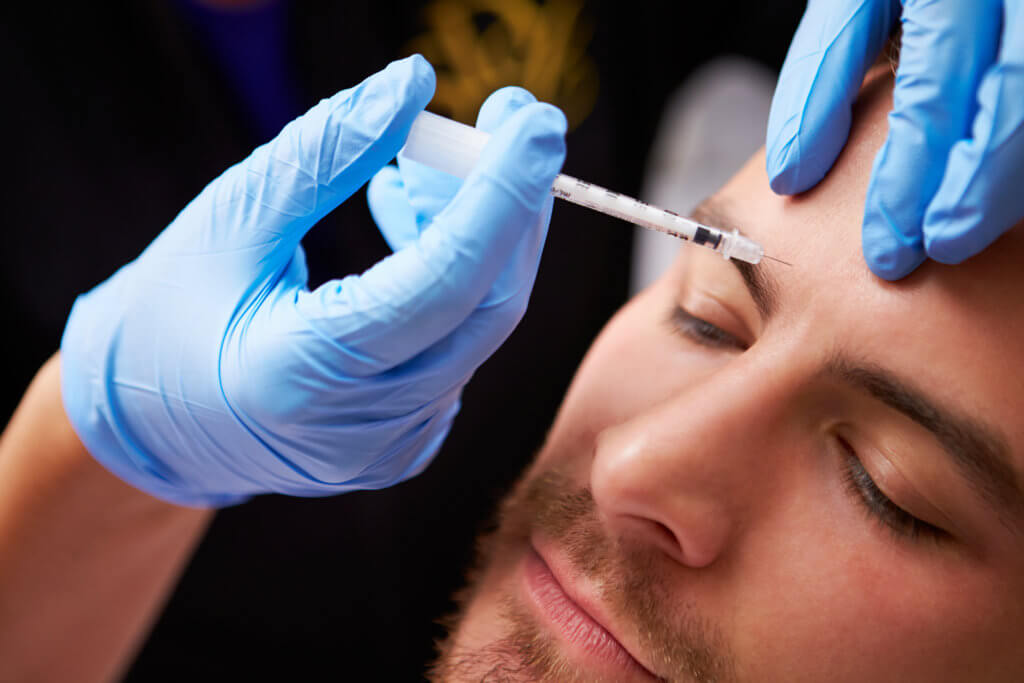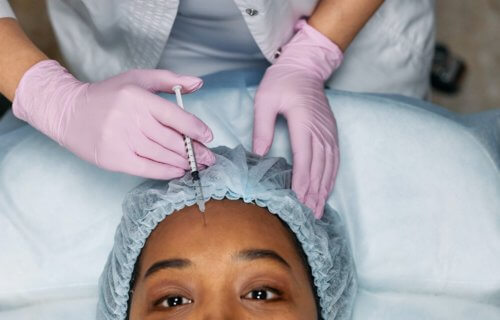ADELAIDE, Australia — Smoothing out wrinkles using Botox may end up causing more problems than they fix. A recent study finds these injections, which many people use on their face to look younger, can make it harder to recognize emotions.
Scientists warn that jabs in the forehead alter the way people’s brains respond to faces, making it more difficult to read expressions and mimic a smile or a frown. Botox works by paralyzing muscles. The finding could have implications for couples and even friendships, leaving people unable to properly recognize and express emotions.
“Normally, when we see expressions, we unconsciously mimic them to help us recognize them,” says lead author Dr. Fernando Marmolejo-Ramos from the University of South Australia, according to a statement from SWNS per New Scientist.
As our facial muscles copy another person’s frown or smile, they send signals to brain areas like the amygdala and fusiform gyrus that interpret the emotions, the researcher explains. Since Botox restricts muscle movement, it may disrupt communication between the face and the amygdala and fusiform gyrus.
“You might not be able to experience someone else’s emotions as intensely or vividly as you would like to,” Dr. Marmolejo-Ramos adds, according to SWNS.
An international team scanned the brains of 10 women between the ages of 33 and 40 before they had injections of botulinum toxin (Botox) and again two to three weeks later. Participants ended up being unable to frown or smile with their whole faces.
During fMRI (functional magnetic resonance imaging) scans, the team looked at photos of angry and happy faces interspersed with neutral images. After receiving Botox, volunteers displayed altered activity in the amygdala when looking at angry and happy faces, and in the fusiform gyrus when looking at happy ones.

Botox has several other medical uses
Botox reduces the appearance of frown lines, forehead creases, and crow’s feet near the eyes. According to the University of California-San Francisco, approximately 11 million people worldwide have used Botox. It’s one of the most common nonsurgical cosmetic procedures available.
The study found that Botox hindered the “facial feedback hypothesis,” where people instinctively mirror facial expressions in an effort to identify and experience the same emotion. The findings in Scientific Reports add to evidence that Botox affects a person’s emotional and physical processing.
Although most commonly associated with cosmetic procedures, Botox’s ability to prevent muscle movement has led to doctors also using it as a treatment for migraines, neck spasms, sweating, overactive bladders, lazy eyes, and other muscular conditions. Previous research shows that Botox injections may help lessen depression and help men conquer erectile dysfunction.
Nasty side effects can include weakness, vision or breathing problems, trouble speaking or swallowing and loss of bladder control.
South West News Service writer Mark Waghorn contributed to this report.
